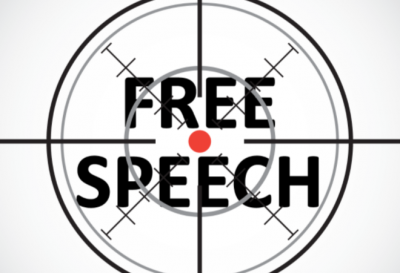The Global Internet Is Facing a Catastrophe for Free Expression

The new EU Copyright Directive is progressing at an alarming rate. This week, the EU is asking its member-states to approve new negotiating positions for the final language. Once they get it, they’re planning to hold a final vote before pushing this drastic, radical new law into 28 countries and 500,000,000 people.
While the majority of the rules in the new Directive are inoffensive updates to European copyright law, two parts of the Directive represent pose a dire threat to the global Internet:
- Article 11: A proposal to make platforms pay for linking to news sites by creating a non-waivable right to license any links from for-profit services (where those links include more than a word or two from the story or its headline). Article 11 fails to define “news sites,” “commercial platforms” and “links,” which invites 28 European nations to create 28 mutually exclusive, contradictory licensing regimes. Additionally, the fact that the “linking right” can’t be waived means that open-access, public-interest, nonprofit and Creative Commons news sites can’t opt out of the system.
- Article 13: A proposal to end the appearance of unlicensed copyrighted works on big user-generated content platforms, even for an instant. Initially, this included an explicit mandate to develop “filters” that would examine every social media posting by everyone in the world and check whether it matched entries in an open, crowdsourced database of supposedly copyrighted materials. In its current form, the rule says that filters “should be avoided” but does not explain how billions of social media posts, videos, audio files, and blog posts should be monitored for infringement without automated filtering systems.
Taken together, these two rules will subject huge swaths of online expression to interception and arbitrary censorship, and give the largest news companies in Europe the power to decide who can discuss and criticise their reporting, and undermining public-interest, open-access journalism.
The Directive is now in the hands of the European member-states. National ministers are going to decide whether or not Europe becomes a global exporter of censorship and surveillance. Your voice counts: when you contact your ministers, you are speaking as one citizen to another, in a national context, about issues of import to you and your neighbours. Your national government depends on your goodwill to win the votes to continue its mandate. This is a rare moment in European lawmaking when local connections from citizens matter more than well-funded, international corporations.
If you live in Sweden, Germany, Luxembourg, Poland, Belgium, or Czechia:
Please contact your ministers to convey your concern about Article 13 and 11.
We’ve set up action pages to reach the right people, but you should tailor your message to describe who you are, and your worries. Your country has previously expressed concerns about Article 13 and 11, and may still oppose it.
*
Note to readers: please click the share buttons above. Forward this article to your email lists. Crosspost on your blog site, internet forums. etc.
Featured image is from TruePublica

